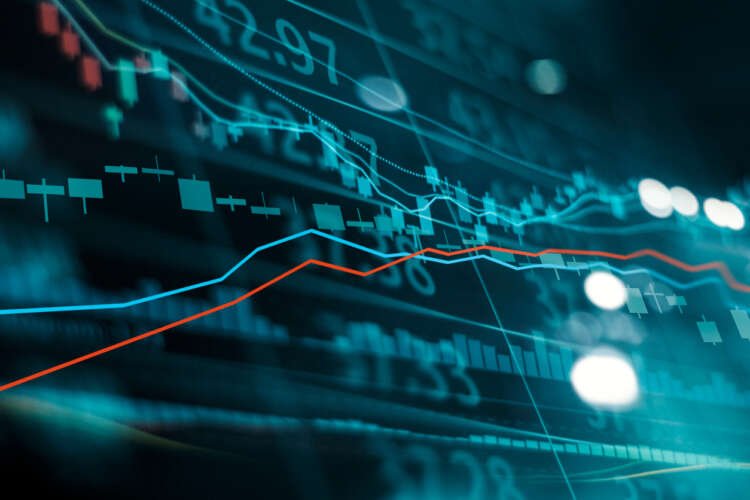Funders, corporates, intermediaries: how digital networks can help to make everyone a winner in trade finance


By Hussein Al Amine, Head of Business Development & Global Strategic Alliances at Fineon Exchange
The volatility accumulated over the course of recent years has sent waves across the trade finance industry, drying up sources of liquidity and slowing down growth. With the effects of supply chain turmoil still reverberating globally, financial institutions are facing tougher conditions to allocate funding, and many businesses – including global exporters, medium to large, and small- and medium-sized enterprises (SMEs) in emerging markets – are struggling to secure the liquidity needed to operate. This can be evidenced by the expansion of the global trade finance gap, which has widened from US$1.5 trillion in 2018 to US$1.7 trillion in 2020.
Fortunately, the emergence of digital networking platforms – and the accelerated adoption of digital due to the pandemic – is helping to provide an effective tool to maximise trade finance opportunities.
Obstacles to trade
Trade finance is the lifeblood of international trade. Any constraints on finance will therefore impact trade and growth. Research by the World Economic Forum (WEF) suggests that inadequate trade finance is one of the top three export obstacles for at least half of the world’s countries.
What’s more, the WEF estimates the trade finance gap will continue to grow – reaching US$2.5 trillion by 2025 – as many banks and financial institutions (FIs) navigate the increasingly challenging lending and compliance environment by tightening requirements for borrowing, with an increased rate of rejected funding applications expected to follow.
A recent global industry survey by Fineon Exchange found that 72% of respondents pointed at funder interest, risk appetite, and the borrower’s ability to meet funder requirements as salient factors determining success of transactions. Such elements are significant to note considering the de-risking trend of many large FIs since the financial crisis (2008-9), exiting regions such as Africa, Asia, and Latin America – and thereby leaving a large proportion of SMEs facing higher barriers to trade internationally, and raising issues regarding financial inclusion.
Indeed, over half of the survey respondents believe a company’s size can be a determinant in securing funding for deals, while another 41% agree a company’s geographic location has an effect. Added to this, know your customer (KYC) and anti-money laundering (AML) costs are also contributing further to the widening the trade finance gap as less companies are able to meet the requirements.
Already, over half of funding applications by SMEs are rejected worldwide, according to the World Trade Organization (WTO). In such fragmented context, and a commodity price volatility that leads to funding tending to concentrate on bigger businesses within banks’ core, more familiar markets, it becomes even more critical for companies to be able to access finance beyond their borders.
Yet, despite the challenging landscape for borrowers and funders alike, there seemingly are quality deals and receptive funders in the market. Half of the respondents in Fineon Exchange’s study believe the current issues are due to the lack of available funders to finance good deals. Conversely, 50% of respondents believe the problem to be the lack of quality “bankable” deals to receive funding. If both are true, then the issue might instead be an inability of these willing and able trade finance users to effectively find each other. This presents opportunities for funders to harness good deals by using a single point of origination in a digital interface.
To this end, the global connectivity provided by digital channels is an alternative that can benefit both funders and borrowers alike, helping to find the right counterparty to effect successful deals and unlock greater liquidity, regardless of size or geography.
Tech-powered matchmaking
Establishing a robust digital network to connect trade finance practitioners is a win-win for all stakeholders, providing a more streamlined experience where funding appetite is matched with compatible, well-structured, and credit-enhanced transactions.
For FIs looking to find good deals, a digital platform is an efficient and dynamic method to filter funding requests to match their criteria using the capabilities of artificial intelligence (AI). Conversely, for corporates, a single platform can concentrate working capital transactions and expand their funding options away from their usual sources, while providing greater transparency across the supply chain.
Using AI to validate requests for trade finance and then match bankable projects with compatible funders, a digital marketplace can thereby bring a higher chance of successful deals, benefiting every counterparty in a transaction and helping to put medium to large and smaller businesses on more of an even footing with larger companies when it comes to securing trade finance.
Furthermore, with the structuring of deals, KYC requirements and a lack of granular counterparty and transaction details cited as key reasons for trade finance applications being rejected, a digital platform would enable market participants to benefit from the knowledge-sharing available in a peer-to-peer network, gathering better insights that reduce the likelihood of failed transactions through faster, more transparent, and optimal decision-making. These platforms not only allow the right people to connect at the right time to effect deals, but also leverage data and AI to provide a consistent flow of information on credit committee ready transactions at no cost to the funder. This allows for a better understanding of the marketplace and more informed business decisions.
Moreover, with geography a limiting factor in unlocking funding due to risk concerns and general unfamiliarity, a trade finance network could engage with funders with a variety of appetites across different regions and sectors using an algorithm that effectively matches funding requests to a funder’s credit risk management criteria. This would enable to create new pools of liquidity worldwide.
Connecting stakeholders to increase the chances of transactions being facilitated and financed brings benefits for all and is in everyone’s interest. Indeed, we are all invested in the business of supporting global trade. Ultimately, the power of a network hinges on advocacy, cooperation, and collaboration – i.e., “the network effect”. If digital platforms are widely leveraged by funders, businesses, trade finance intermediaries and credit insurers alike, such global marketplaces can create more winners in trade finance – channelling efforts to narrow the gap in funding and delivering an improved experience for all stakeholders.
Read more about the survey in Fineon Exchange’s industry whitepaper, Trade Finance Optimisation: Connecting the Right People at the Right Time: https://fineon.net/whitepaper-2022/.
Trade finance refers to the financial instruments and products that companies use to facilitate international trade and commerce, ensuring that exporters receive payment and importers receive goods.
Liquidity is the ability of an asset to be quickly converted into cash without significantly affecting its price. In finance, it refers to how easily assets can be bought or sold.
Financial inclusion means ensuring that individuals and businesses have access to useful and affordable financial products and services, including banking, loans, and insurance.
A digital network is a system that allows for the electronic exchange of information and services among users, often utilizing technology to enhance connectivity and efficiency.
Artificial intelligence in finance refers to the use of algorithms and software to analyze data, automate processes, and make decisions in financial services, improving efficiency and accuracy.
Explore more articles in the Finance category




